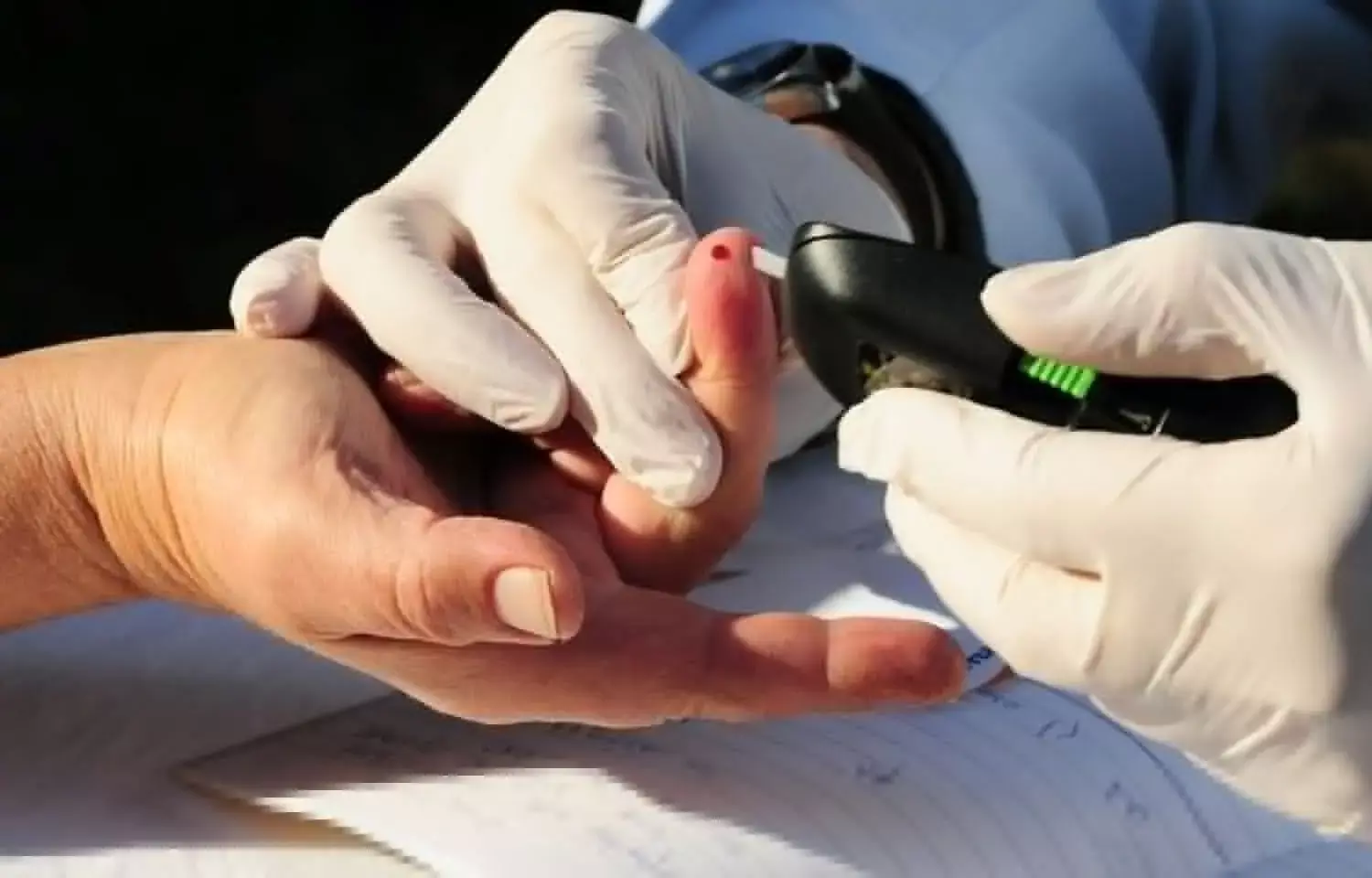- Home
- Medical news & Guidelines
- Anesthesiology
- Cardiology and CTVS
- Critical Care
- Dentistry
- Dermatology
- Diabetes and Endocrinology
- ENT
- Gastroenterology
- Medicine
- Nephrology
- Neurology
- Obstretics-Gynaecology
- Oncology
- Ophthalmology
- Orthopaedics
- Pediatrics-Neonatology
- Psychiatry
- Pulmonology
- Radiology
- Surgery
- Urology
- Laboratory Medicine
- Diet
- Nursing
- Paramedical
- Physiotherapy
- Health news
- Fact Check
- Bone Health Fact Check
- Brain Health Fact Check
- Cancer Related Fact Check
- Child Care Fact Check
- Dental and oral health fact check
- Diabetes and metabolic health fact check
- Diet and Nutrition Fact Check
- Eye and ENT Care Fact Check
- Fitness fact check
- Gut health fact check
- Heart health fact check
- Kidney health fact check
- Medical education fact check
- Men's health fact check
- Respiratory fact check
- Skin and hair care fact check
- Vaccine and Immunization fact check
- Women's health fact check
- AYUSH
- State News
- Andaman and Nicobar Islands
- Andhra Pradesh
- Arunachal Pradesh
- Assam
- Bihar
- Chandigarh
- Chattisgarh
- Dadra and Nagar Haveli
- Daman and Diu
- Delhi
- Goa
- Gujarat
- Haryana
- Himachal Pradesh
- Jammu & Kashmir
- Jharkhand
- Karnataka
- Kerala
- Ladakh
- Lakshadweep
- Madhya Pradesh
- Maharashtra
- Manipur
- Meghalaya
- Mizoram
- Nagaland
- Odisha
- Puducherry
- Punjab
- Rajasthan
- Sikkim
- Tamil Nadu
- Telangana
- Tripura
- Uttar Pradesh
- Uttrakhand
- West Bengal
- Medical Education
- Industry
Spore-forming microbial whole-cell sensing strategy promising strategy against diabetes management: Study

A new study published in the journal of Nature Microsystems & Nanoengineering found that spore-forming microbial whole-cell sensing strategy to be a promising strategy in the management of diabetes. Elevated blood glucose levels is a hallmark of diabetes, a chronic metabolic condition that can cause serious side effects such blood vessel damage, diabetic retinopathy, renal failure, neuropathy, and cardiovascular disorders. If left untreated, these consequences might lead to serious health problems and even death.
A tiny proportion of diabetes patients are type 1 diabetes, an autoimmune disease that need frequent insulin injections and strict glucose monitoring. Systems for continuous glucose monitoring provide real-time information and a thorough knowledge of blood glucose levels over time. With the use of a spore-forming microbial whole-cell sensing system, this work presents a unique approach to glucose detection. In an engineered paper-based microbial fuel cell (MFC) solves those problems by inducing spore germination in response to the presence and concentration of glucose, resulting in metabolically active cells that produce electricity.
Bacillus subtilis spores are selectively and sensitively germinated in response to glucose in potassium-rich body fluids like perspiration. The electrogenic activity of these cells, which is represented by electricity, acts as a self-powered transducing signal for glucose detection since the rate of germination and the quantity of metabolically active germinating cells are directly proportional to the concentration of glucose. These electrical power outputs are measured and visible through a small interface in a microengineered, paper-based microbial fuel cell, offering real-time alarms.
The self-replicating microorganisms provide resilience, while the dormant spores prolong shelf life. With a noticeably lower limit of detection at ~0.07 mM, the MFC showed an impressive sensitivity of 2.246 µW·(log mM)−1·cm−2 to glucose concentrations ranging from 0.2 to 10 mM. Even when a variety of interferences were present, the sensor's remarkable selectivity allowed it to detect glucose with accuracy.
Comparative studies showed that the spore-based MFC is stable for long periods of time and quickly regains functionality when required, in contrast to traditional enzymatic biosensors, whose performance deteriorates dramatically over time even while inactive. The spore-forming microbial whole-cell sensing approach has a lot of potential for effective diabetes treatment and can be expanded to noninvasive wearable monitoring, resolving significant issues with existing technologies and opening the door for more sophisticated biosensing applications.
Reference:
Gao, Y., Elhadad, A., & Choi, S. (2024). Revolutionary self-powered transducing mechanism for long-lasting and stable glucose monitoring: achieving selective and sensitive bacterial endospore germination in microengineered paper-based platforms. In Microsystems & Nanoengineering (Vol. 10, Issue 1). Springer Science and Business Media LLC. https://doi.org/10.1038/s41378-024-00836-9
Neuroscience Masters graduate
Jacinthlyn Sylvia, a Neuroscience Master's graduate from Chennai has worked extensively in deciphering the neurobiology of cognition and motor control in aging. She also has spread-out exposure to Neurosurgery from her Bachelor’s. She is currently involved in active Neuro-Oncology research. She is an upcoming neuroscientist with a fiery passion for writing. Her news cover at Medical Dialogues feature recent discoveries and updates from the healthcare and biomedical research fields. She can be reached at editorial@medicaldialogues.in
Dr Kamal Kant Kohli-MBBS, DTCD- a chest specialist with more than 30 years of practice and a flair for writing clinical articles, Dr Kamal Kant Kohli joined Medical Dialogues as a Chief Editor of Medical News. Besides writing articles, as an editor, he proofreads and verifies all the medical content published on Medical Dialogues including those coming from journals, studies,medical conferences,guidelines etc. Email: drkohli@medicaldialogues.in. Contact no. 011-43720751


